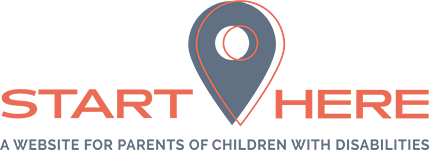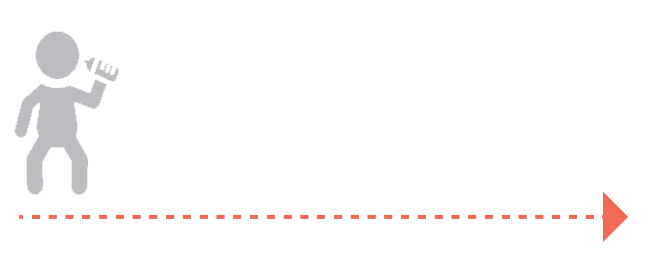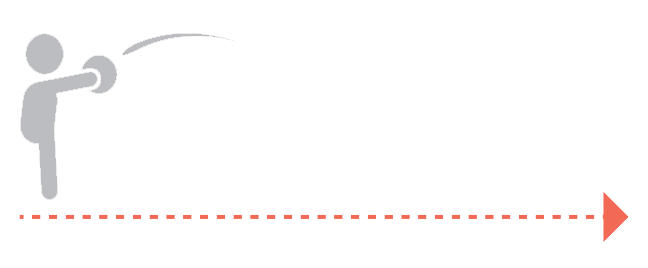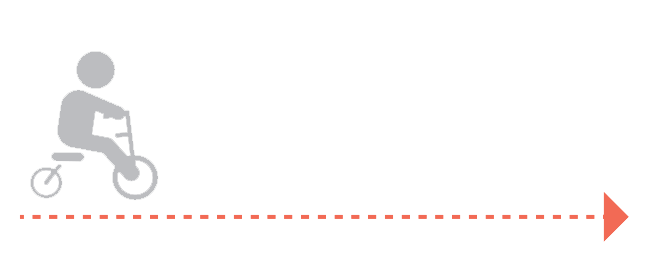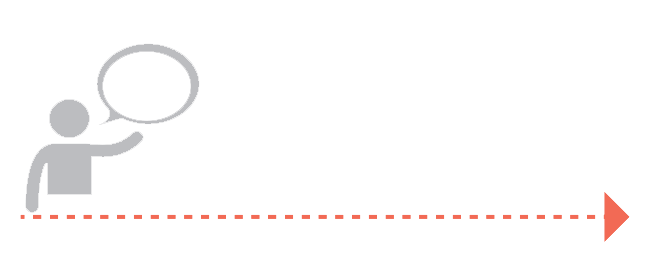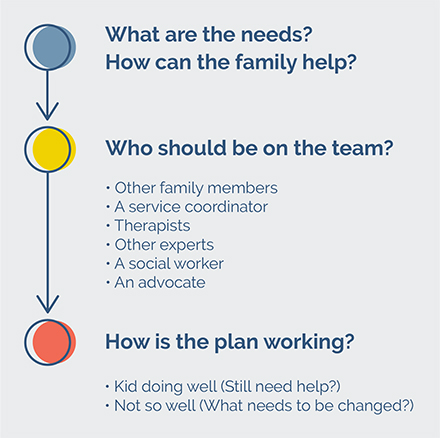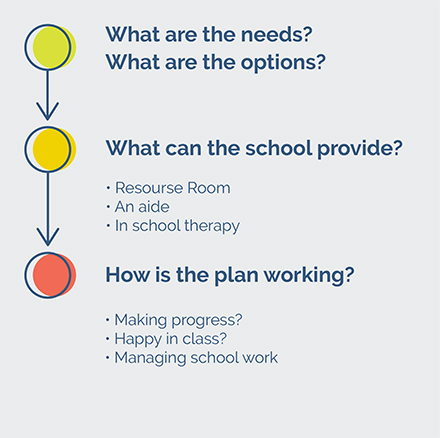Disorders connected to an issue with the developing brain (cerebral)
that affects the control and use of a person’s muscles (palsy)
THERE ARE 4 MAIN TYPES AND SOMETIMES VERY DIFFERENT EFFECTS
Some may just walk a little differently, others may have seizures, challenges with seeing, hearing and speaking, and be unable to walk at all.
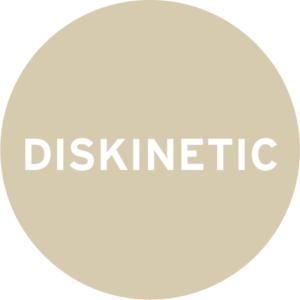
can cause stiffness in different parts of the body, on only one side, all four limbs, and other challenges as well
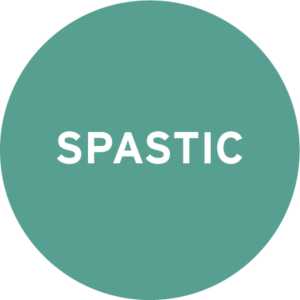
can make controlling movements difficult, whether with limbs, hands and feet or the face and tongue
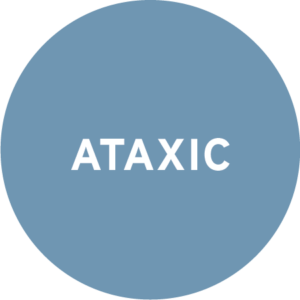
affects balance and coordination and can make everything from walking or writing challenging
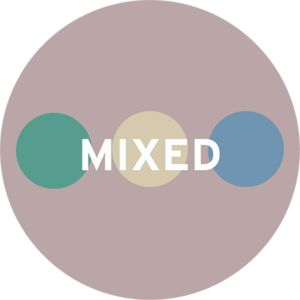
the label used with anyone who has symptoms of more than one type
THE FIRST SIGNS
• A child who doesn’t roll over, sit, stand and start walking around the same age as other kids.
• A baby under 6 months who is so floppy her head lags, or if she is stiff, pushes away or crosses her legs oddly when picked up.
• A baby under 10 months who doesn’t roll over, bring her hands together or bring them to her mouth.
• An infant who crawls unevenly, using one hand and leg more than the other side, or scoots around on his backside or knees.
Call your doctor or ask for assistance when you see these signs.
Diagnosing CP earlier means getting started on helpful interventions sooner.
Remember, your child may have some of these delays and not have CP.
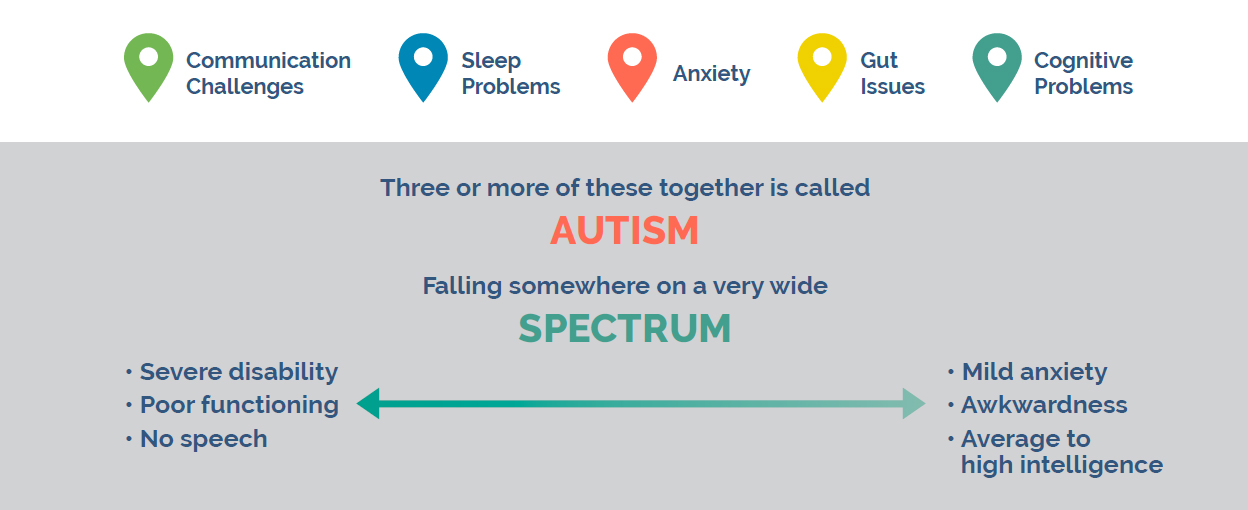
Autism is a label that is used to describe very different individuals so is not always clear or helpful
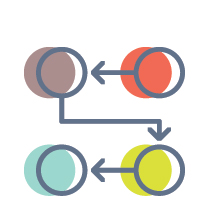
WHAT CAUSES A DISABILITY?
Sometimes the cause of a disability is clear, and in other cases it is not even all that important. But the explanation is often found in one of these three places.
There are disorders that explain why a child is born with a condition that causes disabilities. Some of these are common and have names (like Down Syndrome) and many are so rare that not very much is known about it.
An infection during pregnancy, untreated jaundice or an illness in a very young child that affects the brain can all cause lasting problems.
There are many kinds of trauma that can cause developmental delays and problems in later life. Here are two of the most common.
Birth trauma can cause damage to the brain, often because the baby did not get oxygen during the delivery.
A head injury can be serious for any person, but when a child has a traumatic brain injury it can affect their development. Of course, toddlers and little kids bang their heads all the time without being badly hurt.
A challenge with a child is often noticed when they are not developing as expected, or not reaching developmental milestones. It’s always good to check with a doctor if you think, your child is not developing.
1
AT 2 MONTHS
Babies respond to things
• their parent’s voices
• sounds
• bright colors
AT 6 MONTHS
• pick up objects
• roll over
• turn when their name is called
AT 1 YEAR
• Start to sit up and stand
• play simple games
• wave bye-bye.
2
AT 2 YEARS
• talk
• feed themselves with a spoon
• show affection
3
AT 3 YEARS
• start to play with other kids
• use sentences
• learn skills like putting on their shoes
• opening doors
• riding a tricycle
4
AT 4 YEARS
• understand numbers
• counting and time (a little)
• speak in 5 or 6 word sentences
• remember and tell stories
5
AT 5 YEARS
• dress and undress without help
• somersault
• swing and climb
• can learn to print some letters.
YOUR CHILD TESTED
The sooner a child with challenges gets help, the better. Of course, you can only do something to help once a challenge has been noticed, and with real children in the real world, that’s not always so easy.
Your child’s doctor or teacher, or even a friend or babysitter with experience may suggest testing if they see signs that your child is not progressing like other children. Getting your child tested may turn up nothing out of the ordinary, or it may help you identify strengths as well as issues that need attention.
As parents, you also want to know what to look for. During a regular doctor visit children are checked to see if they are reaching their developmental milestones. But as parents you may be the first to notice that your child isn’t growing, walking or talking like other children their age.
SPEECH & LANGUAGE
A real delay in learning to speak
Trouble understanding language
Speaking in an odd voice
Speaking in a flat tone
BEHAVIOR
Sudden outbursts
Odd walk or body posture
Getting stuck on one topic
Unusual clumsiness
WITH OTHER PEOPLE
Not making eye contact
Not showing interest in other people
Not responding when someone is hurt or crying
Unusual trouble separating from a parent
Every child grows in their own way and none of these mean your child has a problem. Almost every child gets clingy with a parent at some point or seems to only be interested in one friend or topic. When you’re told not to worry because ‘She’s just doing things in her own time or ‘He’ll catch up with himself’ it may be exactly right, and tests may support that opinion. That’s always good, but so is finding out when early intervention is needed.
The plans that help kids who need help
Remember, plans are designed to change with a child.
GOOD ENOUGH PARENT
THE PERFECT WAY
1
Try to do everything right as a parent.
Find out this is impossible.
Get mad at yourself.
2
Try to always do exactly what the therapist
or doctor suggested.
Find out this is impossible. Get mad at
the therapist or doctor.
3
Expect your child to always
behave in public.
Find out this is impossible. Get mad
at your child and embarrassed.
4
Always expect to know exactly
what to do.
Find out you don’t. Get mad at
your parents for not teaching you.
ADMIT YOU’VE IMPERFECT.
RETURN TO 1 AND TRY HARDER.
THE RIGHT WAY
1
Try to be a good enough parent.
Find out this could work.
Feel encouraged.
2
Try to do what the therapist or
doctor suggested whenever you can.
Find out this works well enough,
Feel OK.
3
Expect your child to behave well in public when
they’re not tired, cranky or just impatient.
Find out no one dies from embarrassment.
Feel good to be out of there.
4
Give it your best shot,
because there is no guidebook
Feel free to share this news:
someone has to tell your children.
YOU SUCCEEDED.
FEEL GOOD (ENOUGH).
PEOPLE FEEL SORRY FOR YOU
You’re told ‘You are being so brave about all this!’ or ‘I don’t know how you do it’
Your options:
YOU FEEL BETTER
You might gently help them see why that’s silly: it’s your child, not your burden
Try: ‘All children have challenges: we’re not so different from any other family
Or: ‘We have more to celebrate because every small step can be a big deal’
YOU FEEL PROUD YOU MADE AN EFFORT
You wonder if they are right
YOU FEEL TERRIBLE AND YOU’RE NOT EVEN SURE WHY, EXACTLY
If that kind of remark sounds a lot like ‘how unfortunate!!’
Try: ‘She reminds us every day it’s OK to not be perfect. Who does that for you?
We all have needs: Is yours saying things like that?
Every child has challenges to overcome—even yours!
YOU DON’T FEEL ANNOYED ANYMORE
ABA Applied Behavioral Analysis
ABC Antecedent, Behavior, Consequence
ADA American with Disabilities Act
ADD Attention Deficit Disorder
ADHD Attention Deficit Hyperactivity Disorder
ADLs Activities of Daily Living
ADR Alternative Dispute Resolution
AIM Accessible Instructional Material
APE Adaptive Physical Education
APR Annual Performance Progress
ASD Autism Spectrum Disorder
ASL American Sign Language
AT Assistive Technology
AYP Adequate Yearly Progress
BEESS Bureau of Exceptional Education and Student Services
BD Behavioral Intervention Plan
CAPD Central Auditory Processing Disorder
CBI Community Based Instruction
CC Closed Captioning
CERT Considerations for Educationally
Relevant Services
CF Cystic Fibrosis
CP Cerebral Palsy
DB Deaf-Blind
DD Developmental Delay
DS Down Syndrome
EBD Emotional Behavioral Disorder
ESE Exceptional Student Education
ESOL English for Speakers of Other Languages
ESY Extended School Year
FAPE Free Appropriate Public Education
FBA Functional Behavioral Assessment
FC Facilitated Communication
FERPA Family Educational Rights Privacy Act
GE General Education
GT Gifted and Talented
HI Hearing Impaired
HoH Hard of Hearing
IA Instructional Assistant
ID Intellectual Disabilities
IDEA Individuals with Disabilities Education Act
IEE Independent Educational Evaluation
IEP Individualized Education Program
IFSP Individualized Family Support Plan
IHE Institute of Higher Education
LD Learning Disability
LEA Local Education Agency
LEP Limited English Proficiency
LRE Least Restrictive Environment
MD Muscular Dystrophy
MD Multiple Disabilities
MH Multiply Handicapped
MDR Manifestation Determination
MTSS Multi-Tiered System of Support
NIMAS National Instructional Materials Accessibility Standard
OCD Obsessive-Compulsive Disorder
ODD Oppositional Defiant Disorder
OHI Other Health Impairment
OI Orthopedic Impairment
OT Occupational Therapy
PBIS Positive Behavior Intervention Supports
PD Physical Disability
PDD Pervasive Developmental Disorder
PLEP Present Level of Educational Performance
PLP Present Level of Performance
PP Para-Professional
PS Preschool
PT Physical Therapy
RDA Results-Driven Accountability
RS Related Services
RTI Response to Intervention
